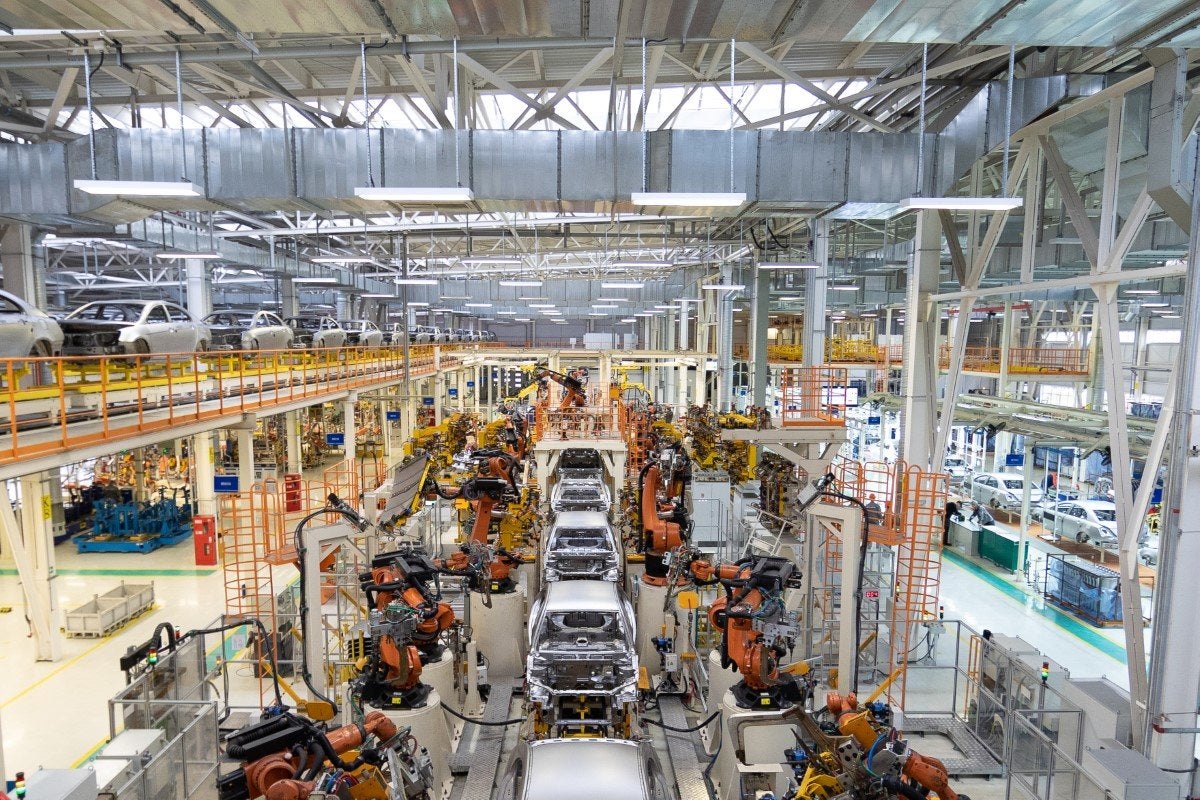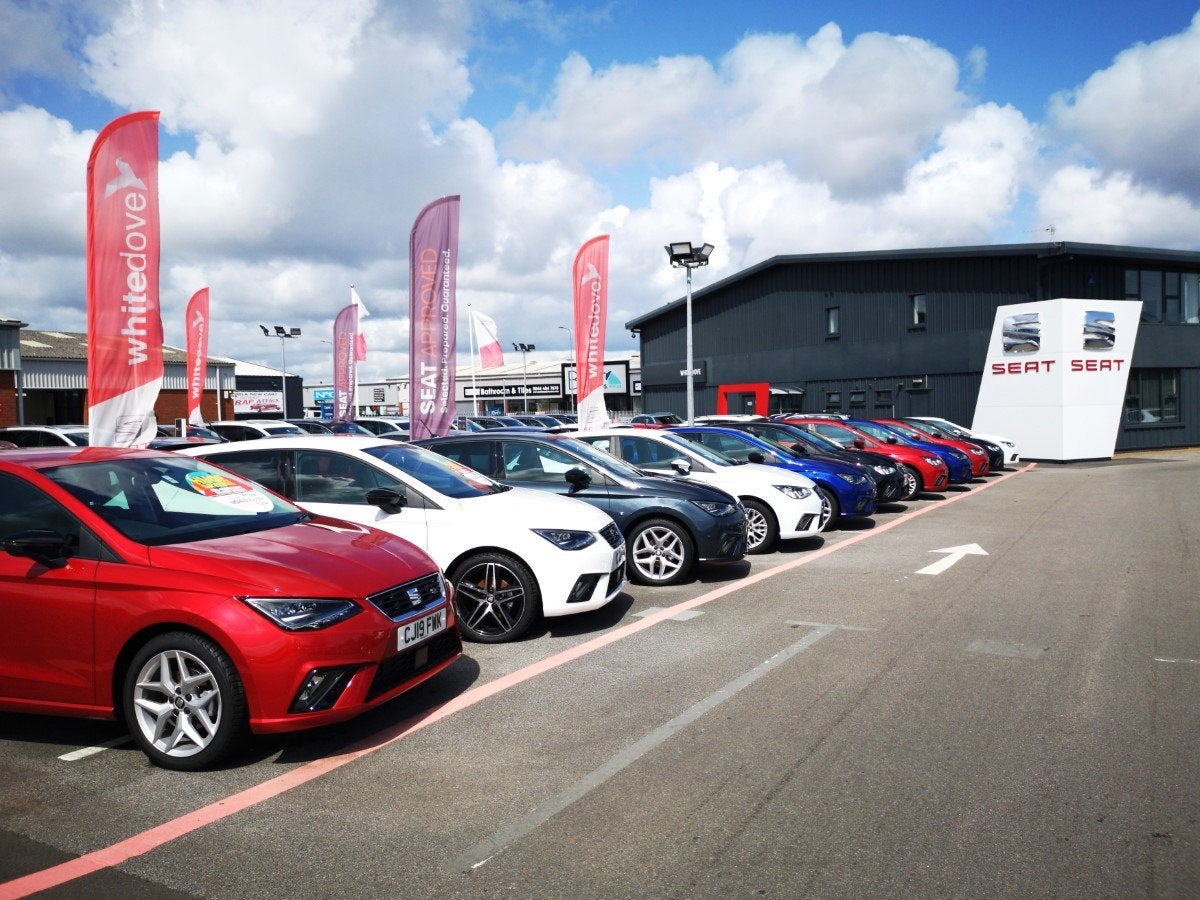Although the UK and global economy has been attempting a return to some kind of normality, new car sales are struggling to reach pre-pandemic levels. This is because there has been an unprecedented global shortage in the supply of computer chips, also known as semiconductors.
Although this started with smaller consumer electronics – in particular game consoles – the dearth of supply has extended to a broader range of more complex consumer products, and has severely affected the supply of new cars. The vast majority of modern cars rely heavily on microprocessor chips, with thousands of them often needed to complete just a single vehicle.
What is the Global Chip Shortage?

The overwhelming majority of consumer goods with electronics in them – from smartphones and washing machines to games consoles and cars – rely on microprocessor computer chip production for their operation. In the automotive industry, anything from parking sensors to cruise control systems to engine management software requires semiconductors. This means that, when these chips aren’t available, cars simply cannot be finished.
The global automotive industry operates what’s known as ‘just in time’ stock management systems, which means that they don’t have to operate endless expensive warehouses. But it also means that they don’t retain much spare component stock. Therefore as soon as the supply chain for a vital component is disrupted, production comes to a halt or is reduced.
This has affected almost every major car manufacturer. In Europe, Daimler, the parent company of Mercedes-Benz, has cut production in 2021, even stopping it entirely in two of its German factories during April. Ford believes it’s set to produce 1.1 million fewer vehicles than it had planned during 2021. And Stellantis – one of the world's largest automakers and the huge umbrella company that owns Peugeot, Citroen, Opel, Vauxhall and Fiat – has changed the designs on parts of its new cars to get around the issue, which it believes is set to continue into 2021.
The Renault-Nissan-Mitsubishi Alliance, meanwhile, reports that it has suffered production setbacks in the region of 200,000 cars in 2021, and Volkswagen said that it had lost around 100,000 vehicles in 2020 owing to the chip shortage. Of the major global vehicle manufacturers, only Toyota and Tesla seem to have weathered the global chip shortage effectively.
Why the Chip Shortage is Happening

There are several reasons for the global semiconductor shortage. The first was the worldwide shutdown as a result of the COVID-19 pandemic in the spring of 2020, which affected producers of computer chips much as it did almost every other business and industry around the world. The outcome was lower production of semiconductor chips than normal.
Conversely, the demand for consumer electronics shot up during the early days of lockdown, as people adjusted to both working and playing at home. This meant hugely increased demand for consumer electronics in the form of home-office tech to keep remote workers connected, plus unprecedented demand for the newly launched Sony PlayStation 5 and Microsoft Xbox Series S/X consoles. While tech firms such as Samsung, Apple and Microsoft stockpiled chips or increased production, car-makers were left behind in the queue while chipmakers struggled to meet demand.
On top of this, a severe winter storm in Texas stopped production at major US semiconductor manufacturing facilities, and a fire at the factory of chip firm Renesas in Japan caused further restrictions on semiconductor supply.
What the Chip Shortage Means for New Car Sales

The consequence of all this for the consumer is that, at a time when there is pent-up demand in the system, manufacturers can't produce enough cars. The UK’s motor industry representative body – the Society of Motor Manufacturers and Traders – has said that UK car production in the first half of 2021 was at its lowest point since 1953.
This means waiting lists are getting longer and long production lead times for build slots are now common, whatever type of new car you’re shopping for. On top of all that, the prices of pre-registered cars – those that have been built and registered by dealers and so are technically not ‘brand new’ – have shot up.
The Effect of the Chip Shortage on the Used Car Market

There has been a consequent cascade effect for the wider used car market, too. Those unable to buy new cars have been turning to nearly-new models, pushing those who would otherwise be looking at buying a nearly-new car to look at older secondhand models.
Although the effect on prices is less significant for models on the market that are more than four or five years old, the whole used car industry is seeing a strong rise in prices, as supply and used inventory continues to be constrained but with demand still high.
CarGurus’ own data shows that used car inventory levels across its dealers are only around 85% of what they were at the start of the coronavirus pandemic, and dropped consistently during the first half of 2021. At the same time, the CarGurus data reveals that the average used car listing price has jumped, from just over £14,000 in January 2021 to just over £16,000 in July 2021, while the average time a vehicle spends on sale has dropped from 95 days to just 60.
What Does this Mean for the Future?
At its simplest, the chip shortage is an example of greater demand for a product – in this case cars – than the industry can supply. Many industry analysts predict the chip shortage of 2020-2021 will continue well into 2022 while computer chip manufacturers work to increase capacity to meet the extra demand.
On a wider scale, supply chain disruption – interruption to vital component delivery for consumer goods – has become more common, and this trend is likely to continue. This is especially true with the far-reaching and ongoing effects of the coronavirus pandemic, as well as the increased complexity of importing and exporting goods to and from the UK from the EU, post-Brexit. Then there are labour supply issues, such as the ongoing shortage of HGV lorry drivers in the UK.
In the longer term, a particular issue for the automotive industry is likely to be the increasing pressure on the raw materials required to make batteries, particularly lithium and cobalt. Aside from the increasing demand for electric cars in limited supply, there are also concerns about the political volatility of some of the countries with the largest deposits of these raw materials.
The result of all these problems is reduced production in a situation where demand remains constant, or is even going up. Prices inevitably rise as more consumers compete for fewer products. And this holds true whether that’s for milkshakes or battery electric vehicles.
With price volatility in the car market most likely here to stay for at least a while yet, it's more important than ever to know if the car you're considering represents a good deal in the current market. Find out its current market worth on CarGurus with our free Instant Market Value tool.
Related Topics:
Most Popular New and Used Cars in the UK in 2021
How long will the battery in an EV last, and how much is a replacement?
Should I Buy a Petrol, Diesel, Hybrid or Electric Car?

